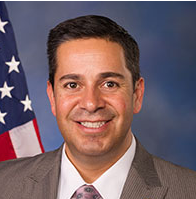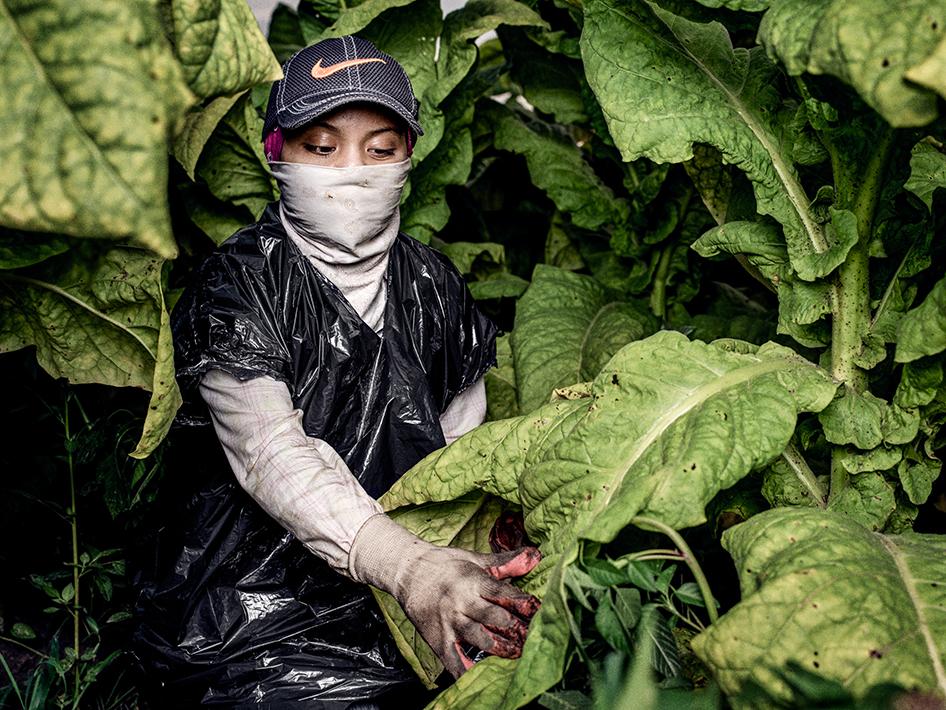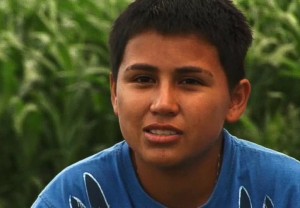| Action for Children North Carolina |
| AFL-CIO |
| Alianza Nacional de Campesinas |
| Alliance for Justice |
| American Academy of Pediatrics |
| American Federation of State, County and Municipal Employees (AFSCME) |
| American Federation of Teachers |
| American Medical Women’s Association |
| Amnesty International USA |
| Arkansas Human Development Corporation |
| Asian Americans Advancing Justice — AAJC |
| Asian Pacific American Labor Alliance |
| Association of Farmworker Opportunity Programs |
| Association of Western Pulp and Paper Workers (AWPPW) |
| Bakery, Confectionery, Tobacco Workers, & Grain Millers International Union |
| Bakery, Confectionery, Tobacco Workers, & Grain Millers International Union, Local 351 (NM) |
| Bank Information Center |
| Be Slavery Free |
| Beyond Borders |
| Beyond Pesticides |
| Bon Appétit Management Company |
| California Human Development |
| California Rural Legal Assistance Foundation |
| Casa de Esperanza: National Latin@ Network for Healthy Families and Communities |
| CATA – Farmworkers’ Support Committee (NJ, PA, MD) |
| Causa (OR) |
| Center for Childhood & Youth Studies, Salem State University (MA) |
| Center for Human Rights of Children, Loyola University |
| Center for Progressive Reform |
| Central Valley Opportunity Center (California) |
| Centro de los Derechos del Migrante |
| Child Labor Coalition |
| Child Welfare League of America |
| Children’s Advocacy Institute, Univ. of San Diego School of Law (CA) |
| Children’s Alliance (Washington State) |
| CLASP |
| Coalition to Abolish Slavery and Trafficking̶̶—CAST |
| Coalition of Immokalee Workers |
| Coalition on Human Needs |
| Communications Workers of America |
| Community Council of Idaho |
| Community Farm Alliance |
| Corporate Accountability Lab |
| CREA: Center for Reflection, Education and Action |
| Delaware Ecumenical Council on Children and Families |
| Dialogue on Diversity |
| Earth Ethics |
| Earth Justice |
| East Coast Migrant Head Start Project |
| Episcopal Farmworker Ministry (NC) |
| Fairtrade America |
| Fair World Project |
| Families USA |
| Farm Labor Organizing Committee |
| Farmworker and Landscaper Advocacy Project (IL) |
| Farmworker Association of Florida |
| Farmworker Justice |
| Feminist Majority Foundation |
| First Focus Campaign for Children |
| Food and Water Action |
| Food Chain Workers Alliance |
| Food Empowerment Project |
| Food Policy Action Education Fund |
| Food Tank |
| Friends of the Earth |
| Futures Without Violence |
| General Federation of Women’s Clubs |
| Girls Inc. |
| Global Campaign for Education–US |
| Global Fairness Initiative |
| Global March Against Child Labour |
| GoodWeave |
| Green America |
| Hispanic Affairs Project (Colorado) |
| Hispanic Association of Colleges and Universities (HACU) |
| Hispanic Federation |
| Human Agenda |
| Human Rights Watch |
| Human Trafficking Legal Center |
| Interfaith Center on Corporate Responsibility |
| International Bar Association’s Institute of Human Rights |
| International Brotherhood of Teamsters |
| International Initiative to End Child Labor |
| International Justice Mission |
| International Labor Rights Forum |
| International Rights Advocates |
| Jobs with Justice |
| Justice for Migrant Women |
| Kailash Satyarthi Children’s Foundation |
| Kentucky Equal Justice Center |
| Kentucky Youth Advocates |
| Labor Council for Latin American Advancement–LACLAA |
| La Semilla Food Center (NM & TX) |
| Latin American Legal Defense and Education Fund – LALDEF (NJ) |
| Lawyers for Good Government |
| League of United Latin American Citizens (LULAC) |
| Learning Disabilities Association of America |
| Learning Disabilities Association of Maine |
| Legal Aid Justice Center (VA) |
| Lideres Campesinas |
| MANA, A National Latina Organization |
| Marshfield Clinic Health System |
| Maryland Pesticide Network |
| Massachusetts Coalition for Occupational Safety and Health (Mass COSH) |
| Media Voices for Children |
| MEO (HI) |
| Michigan Migrant Legal Assistance Project |
| Mighty Earth |
| Migrant Clinician’s Network |
| Migrant Justice // Justicia Migrante |
| Migrant Legal Action Program |
| Motivation, Education, and Training, Inc. (LA, MN, ND, NM, TX, WY) |
| NAACP |
| National Association of Pediatric Nurse Practitioners (NAPNAP) |
| National Association of State Directors of Migrant Education |
| National Center for Farmworker Health |
| National Consumers League |
| National Council for Occupational Safety and Health (National COSH) |
| National Council of Jewish Women |
| National Domestic Workers Alliance |
| National Education Association |
| National Employment Law Project (NELP) |
| National Farm Medicine Center |
| National Farm Worker Ministry |
| National Immigration Law Center |
| National Migrant and Seasonal Head Start Association |
| National Organization for Women |
| National Partnership for Women and Families |
| National Women’s Law Center |
| NC Field (NC) |
| New Labor (NJ) |
| New Mexico Center on Law and Poverty |
| New Mexico Voices for Children |
| North Carolina Council of Churches (NC) |
| North Carolina Justice Center (NC) |
| Northwest Center for Alternatives to Pesticides (NCAP) |
| Northwest Workers’ Justice Project (OR) |
| NYS American Academy of Pediatrics, Chapters 1, 2 & 3 (NY) |
| NYSUT — A Union of Professionals (NY) |
| Oregon Human Development Corporation |
| PathStone (IN, NJ, NY, OH, PA, PR, VT, VA) |
| Pax Christi USA |
| PCUN—Pineros y Campesinos del Noroeste (Northwest Treeplanters and Farmworkers) |
| Pesticide Action Network |
| PhilaPOSH |
| Phoenix Zones Initiative |
| Physicians for Social Responsibility, New Mexico Chapter |
| Polaris |
| Pride at Work |
| Progressive Democrats of America |
| Project Protect Food Systems (CO) |
| Promise Institute for Human Rights, UCLA School of Law (CA) |
| Proteus Inc. (CA) |
| Public Citizen |
| Rainforest Action Network |
| Responsible Sourcing Network |
| Restaurant Opportunities Centers United (ROC) |
| Robert F. Kennedy Human Rights |
| Rukmini Foundation |
| Rural Advancement Foundation International-USA |
| Rural and Migrant Ministry (NY) |
| Rural Coalition |
| SafeJobs Oregon |
| SafeWork Washington |
| SER Jobs for Progress National, Inc. |
| Service Employees International Union (SEIU) |
| Shine Global |
| Shriver Center on Law and Poverty |
| Sierra Club |
| Social Accountability International |
| Society for the Advancement of Violence and Injury Research (SAVIR) |
| SPLC Action Fund |
| Student Action with Farmworkers (NC) |
| Telamon Corp./Transition Resources Corp. (AL, DE, GA, IN, MD, MI, NC, SC, TN, VA, WV) |
| Texas AFL-CIO |
| Tony’s Chocolonely |
| Toxic Free NC (NC) |
| Trinity Human Rights Group |
| UFW Foundation |
| UnidosUS |
| Union of Concerned Scientists |
| United Farm Workers of America (UFW) |
| United Food & Commercial Workers International Union |
| United Methodist Church – General Board of Church and Society |
| United Methodist Women |
| United Migrant Opportunity Services (WI, FL, MN, MO, TX) |
| United Nations Association of the National Capital Area (DC) |
| United Steel Workers |
| United States Hispanic Leadership Institute |
| Vecinos Farmworker Health Program (North Carolina) |
| Verité |
| Virginia Interfaith Center for Public Policy |
| Voices for Utah Children |
| Wasatch Clean Air Coalition (UT) |
| Washington Lawyers Committee |
| Wayne Action for Racial Equality (NY) |
| Western New York Council on Occupational Safety and Health (NY) |
| Western North Carolina Workers’ Center (NC) |
| Winrock International |
| Worker Justice Center of New York (NY) |
| Worksafe (CA) |









